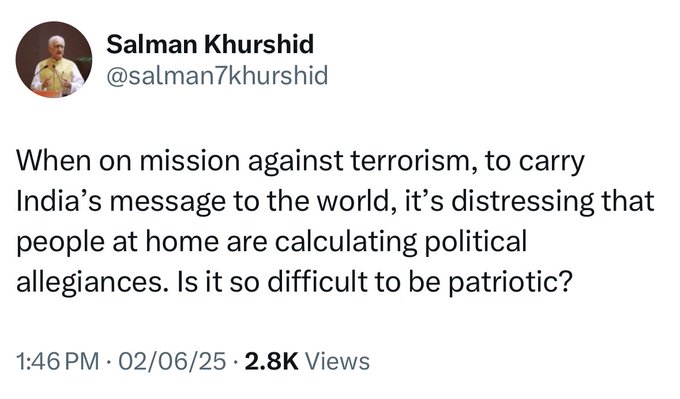In a surprising turn of events, former Indian Minister Salman Khurshid has openly criticized the Congress party and its leadership, signaling a shift in his allegiance towards prioritizing the interests of India over party politics.
Khurshid’s public stance has raised eyebrows within the political sphere, with concerns about potential repercussions from his own party for speaking out against them..
Salman Khurshid’s decision to place India above the Parivar, a term commonly used to refer to the Congress party and its associated organizations, reflects growing internal dissent within the party.
This move comes amidst a backdrop of increasing tensions and disagreements over the party’s messaging and strategy, particularly regarding its stance on key national issues..
The public criticism from notable figures within the Congress party, such as Khurshid, Manish, and Tharoor, directed towards Rahul Gandhi and the party’s leadership, highlights deep-rooted divisions and dissatisfaction within its ranks.
The emergence of such dissenting voices underscores the challenges facing the party in maintaining unity and coherence in its messaging and approach to governance..
The rift within the Congress party, as evidenced by Khurshid’s remarks, could have significant implications for the party’s future trajectory and electoral prospects.
The public airing of grievances and discord among prominent members may weaken the party’s credibility and cohesion, potentially impacting its ability to effectively challenge the ruling government and garner public support in upcoming elections..









Leave feedback about this